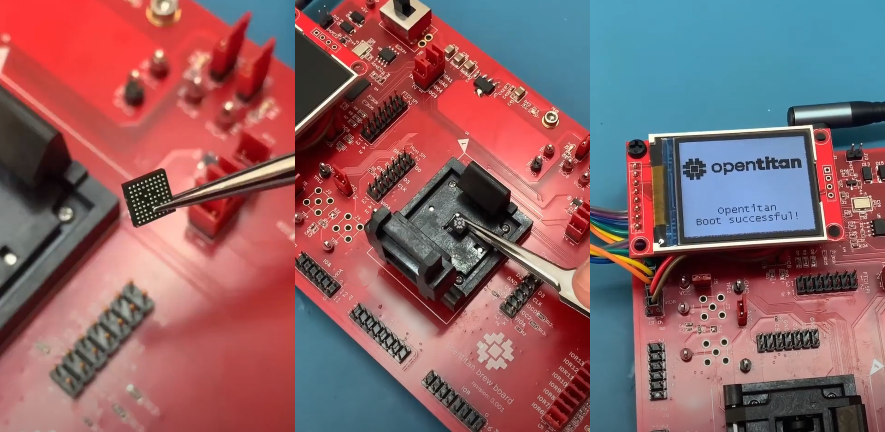
Submitted by Rachel Gardner on Tue, 20/02/2024 - 09:37
While much of our digital world is now based upon open-source software, hardware has remained stubbornly closed-source since the very first modern computers (such as EDSAC) were built in the late 1940s. That is now changing.
Department spin-out lowRISC – a not-for-profit community interest company (CIC) set up to help make open-source hardware a reality – and the OpenTitan coalition have jointly announced a historic milestone: the production of the first commercial quality open-source chip in the world.
Bringing the first trustworthy, transparent, secure silicon platform to market is the result of five years’ collaboration and investment by the OpenTitan Coalition members including Google, Winbond, Nuvoton, zeroRISC, Rivos, Western Digital, Seagate, ETH Zurich and Giesecke+Devrient, hosted by lowRISC.
Dr Gavin Ferris, CEO of lowRISC, OpenTitan’s host organisation, describes the advance as "the culmination of the monumentally hard work of a vibrant and engaged community of contributors focused on a singular goal to achieve what’s never been done before – make open-source silicon work the same way as open-source software." He adds: "I am grateful for this support and can’t wait for what’s to come."
lowRISC was founded in this Department in 2014 by Dr Gavin Ferris, Alex Bradbury and Prof Robert Mullins. Gavin Ferris completed a Computer Science degree here in the Department and holds a PhD in AI from the University. Alex Bradbury studied for a BA and PhD, and also worked, here in the Department. Robert Mullins is a Professor in Computer Architecture here, and was also a founder of the Raspberry Pi Foundation.
lowRISC is chaired by Prof Sir Andy Hopper, Emeritus Professor of Computer Technology here. He says: "lowRISC provides a template for new innovation models in the digital world. Such business structures will be at the heart of wealth creation in future."
lowRISC provides a neutral home for collaborative engineering to develop and maintain open-source silicon designs and tools for the long term. In the case of the OpenTitan project, applying open-source collaborative engineering techniques to hardware required the development of a new methodology called the Silicon Commons.
The completed project illustrates the power and advantages of bringing open-source techniques to bear on hardware designs. The project has also made available a commercial-grade, transparent, silicon root-of-trust (RoT) with the urgent goal of helping to raise the bar for security in a broad range of application areas.
Gavin Ferris adds: "Beyond its immediate applications, sharing an open implementation of such complexity is already enabling research into new formal verification, security verification, and machine-learning-based design tools. Furthermore, it's inspiring the creation of innovative derivative systems, leveraging the foundational building blocks OpenTitan provides and maintains."
The Department congratulates the OpenTitan coalition on their pioneering success and looks forward to seeing lowRISC forge ahead and apply this new innovation model in other important problem areas.

